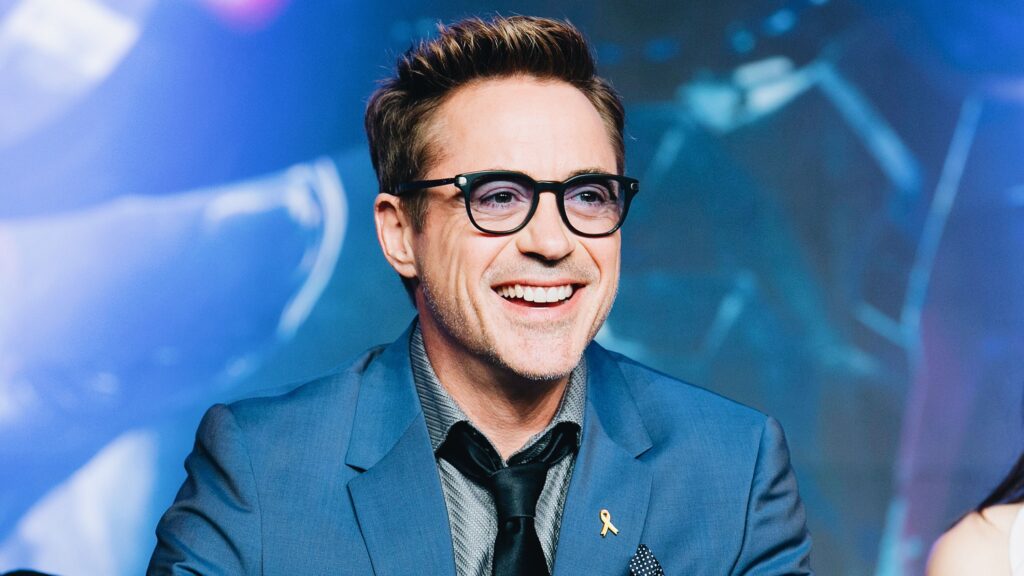Robert Downey Jr.’s venture fund has made a major investment in a vegan brand. Footprint Coalition Ventures, the actor’s fund, is one of several investors that recently threw financial support behind alternative protein startup Atlast Food Co. The New York-based brand produces “whole-cut” plant-based bacon made from mycelium—the fibrous root structure of mushrooms.
Atlast, which is a spinoff from mycelium packaging producer Ecovative Design, secured an impressive $40 million from investors, including the Iron Man star’s contribution. Other backers include Viking Global Investors LP and AiiM Partners.
This latest influx of capital for Atlast, which raised an additional $60 million for Ecovative earlier this month, will fund commercial-scale production of the world’s largest aerial mycelium farm. Mycelium is a key ingredient in the company’s vegan bacon, named MyBacon.
According to Food Navigator, the 80,000 square-foot farm, dubbed “Farm One,” will open next to the company’s New York headquarters. It is due to be operational next year, and will serve b2b consumers.
The money will also help Atlast expand the distribution of its consumer brand, MyEats. It is currently sold in North America and is expected to expand into Europe and Asia shortly.
“We’re trying to get the people who are not going to go full vegetarian to choose this over bacon,” Eben Bayer, Atlast’s chief executive officer, said in an interview. “You can’t just be better for the planet. The Atlast MyEats looks like bacon, it fries like bacon, it crisps up like bacon, it crunches in your mouth like bacon and we think it tastes a lot like bacon.”
As Bayer alluded to, what sets Atlast products apart from other meat alternatives is that they taste and feel like bacon without a litany of ingredients. In fact, MyBacon has just six: mycelium, coconut oil, cane sugar, sea salt, smoked flavors, and beet juice for color.

Is Robert Downey Jr. Vegan?
Downey Jr.’s investment in a plant-based business is no coincidence. The 56-year-old hinted at a switch to a vegan diet at the Dolittle premiere in Los Angeles in January 2020.
The New York native’s wife, Susan Downey, was a producer on the movie. RDJ couldn’t help but gush about her hard work at the event. “She is the greatest creative producer in the history of cinema,” he told Variety at the time.
“And I make faces for cash and chicken,” the actor continued, before adding, “Even though no, I’m off chicken now.”
Susan then confirmed that her husband doesn’t eat chicken “anymore.”
The Oscar nominee was quick to set the record straight about his eating regimen. “I’m going plant-based! For cash and legumes,” he declared.
While it’s not clear if Downey Jr. was ever vegan, and if he continues to omit meat and animal products, it is obvious that he is taking significant steps to help the environment.
He launched Footprint Coalition Ventures in January as an extension of the Footprint Coalition. The philanthropic initiative founded by the Downeys, along with tech investors and entrepreneurs. The Footprint Coalition aims to bring environmental solutions to scale. The actor invested nearly $10 million of his own fortune to launch the venture fund.
The Avengers actor talked about the endeavor at the World Economic Forum in Davos in January. He made it abundantly clear that investments in sustainable companies are crucial. “This global existential threat is not something that’s going to be solved by a smattering of elite mega-corporations,” he said. “I think that paradigm must be smashed in favor of innovation by a broad set of new companies.”
Thus far, Footprint Coalition Ventures has backed several companies. These include Aspirations, a Los Angeles-based financial lender that ensures clients’ money goes to sustainable ventures, and Cloud Paper, which produces bamboo-based paper.


